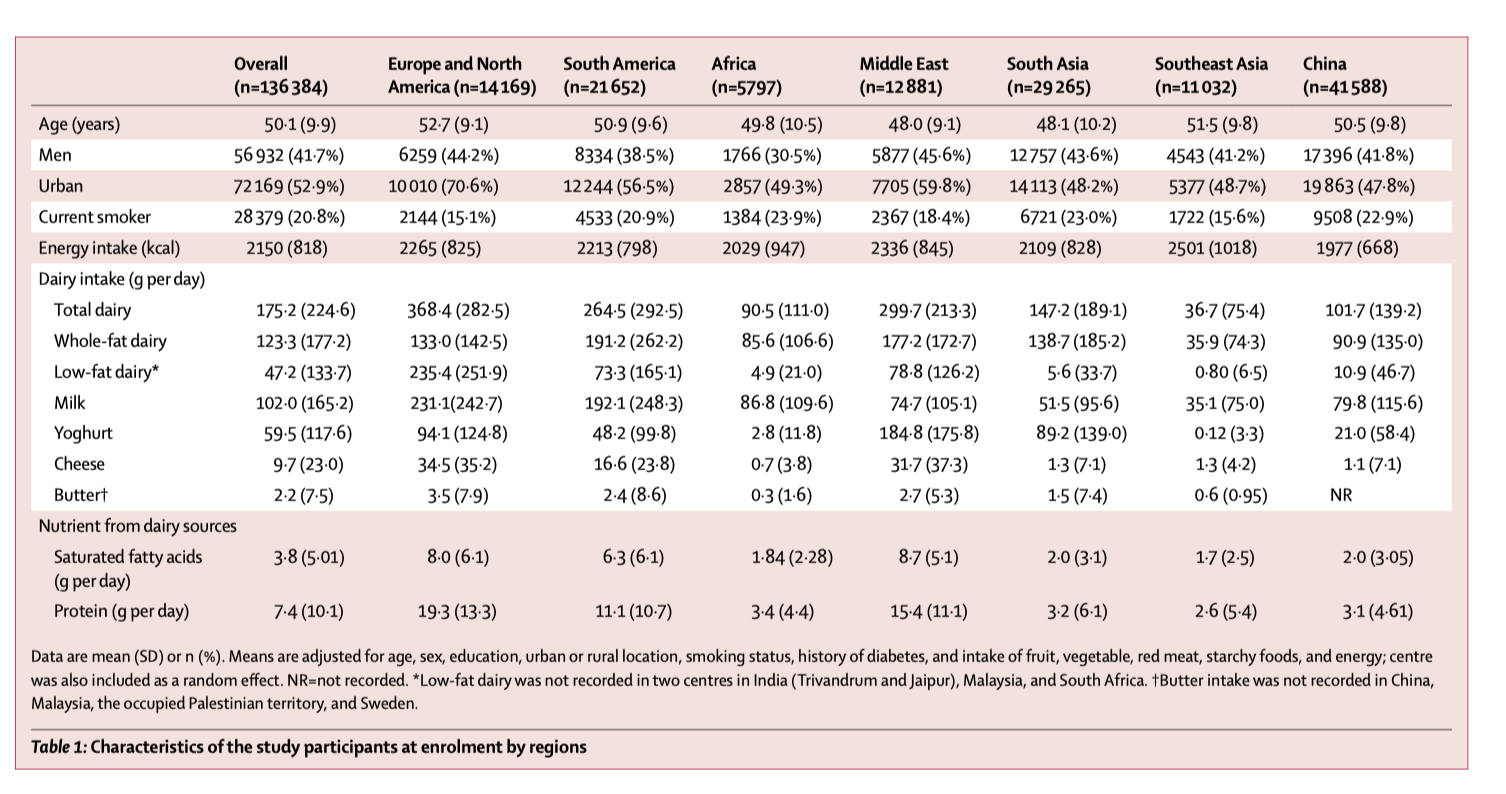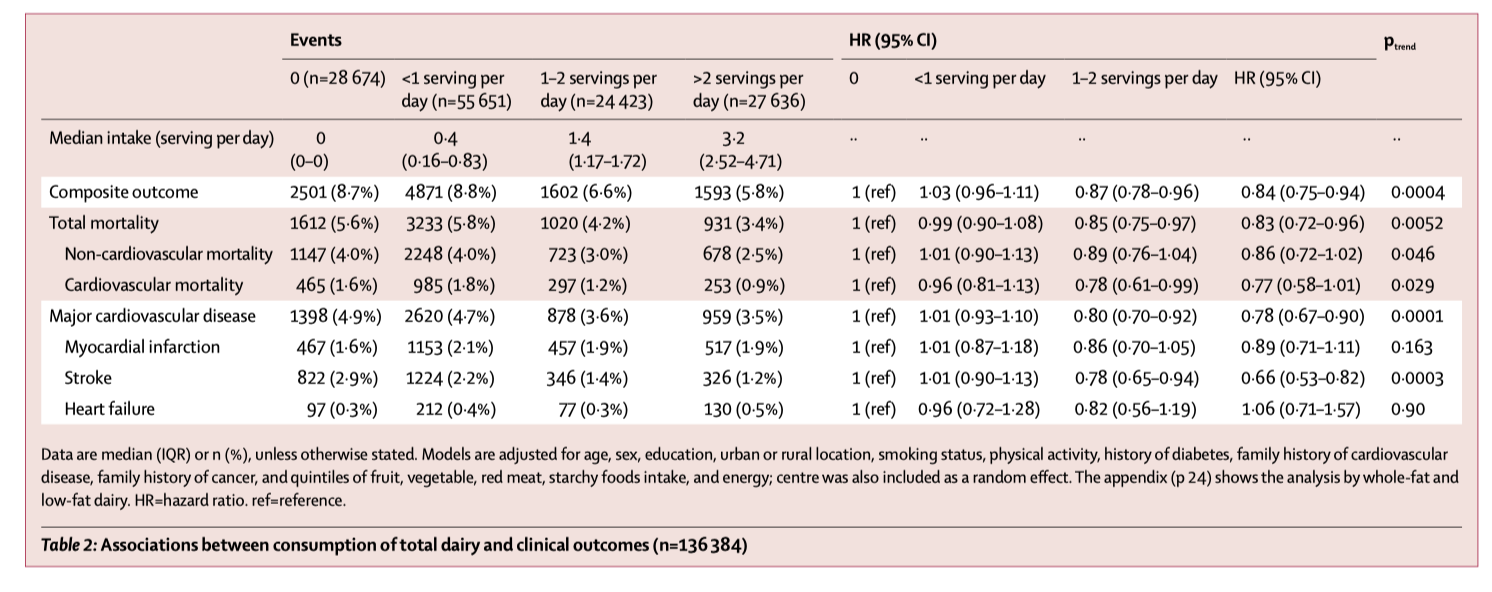Is eating whole fat dairy products good for us? (Part 1)
Whole fat dairy has been vilified for years or decades. It has been thought to be associated with hypercholesterolaemia (high cholesterol levels) as well as high levels of other fat in the blood. We have been programmed by heart foundation to drink low-fat milk, almost no fat milk etc. for years. I have recently moved back to drinking regular fat milk and eating dairy products that are the least amount processed as possible. I drink blue (full-fat milk), butter (not margarine), homemade yoghurt (no added sugar), all various cheeses (apart from processed spreadable ones).
Dairy products are a very diverse group, and it includes fermented (Yoghurt, kefir, cheese) and non-fermented products (milk, butter, cream).
So I have been so excited with the outcome of the PURE study, a large multinational study of individuals aged 35-70 from 21 countries in 5 continents. And this study must be pretty good to be published in the Lancet journal. Also, this study was said to be one of the top 20 health publications this year by several prominent researchers, like Dr Eric Topol, one of the leading cardiologists.
In this study, researchers have looked at the amount and type of dairy food consumed. Butter was excluded in this study as the amount eaten was not recorded in several countries like China, Sweden, Pakistan and Malaysia. The rates of death and the number of major cardiovascular events were the primary outcomes of this study. Over 150,000 people from 5 continents were included in this study. The image below shows the characteristics of the people involved in the study and what dairy products they consumed.
The image below shows that all causes mortality and cardiovascular mortality, as well as rates of major cardiovascular disease, was lower in those people who had increased intake of dairy products.
But most important findings are in the image below which shows that eating full-fat products (Group A)is associated with these benefits. Eating a combination of full-fat and low-fat does not lead to the same effects at all (even though the total intake of fat in the two groups was identical). High yoghurt intake was associated with a 10% lower risk of mortality and cardiovascular disease, which is enormous.


